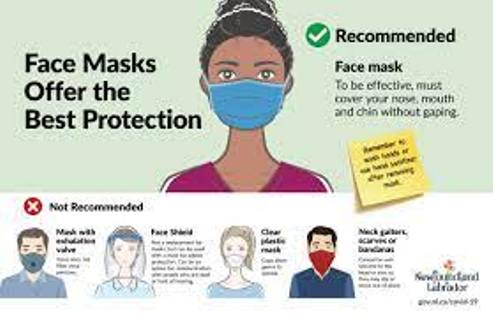LAGOS JANUARY 17TH (NEWSRANGERS)-The World Health Organisation has recommended the use of facemasks by the public in specific situations.
The WHO issued the update given the current spread of COVID-19 globally.
The agency notes that masks are recommended following recent exposure to COVID-19, when someone has or suspects they have COVID-19, when someone is at high risk of severe COVID-19, and for anyone in a crowded, enclosed, or poorly ventilated space.
The PUNCH reports that 42 new cases of COVID-19 were confirmed from December 31, 2022, to January 13, 2023.
So far, Nigeria has recorded 266,492 COVID-19 confirmed cases; 3,155 deaths, and 259,858 cases have been discharged across 36 states and the Federal Capital Territory.
As of January 13, there have been 661,545,258 confirmed cases of COVID-19, including 6,700,519 deaths, reported to WHO.
In a new release by the WHO, it said, “Previously, the WHO recommendations were based on the epidemiological situation.
“Similar to previous recommendations, WHO advises that there are other instances when a mask may be suggested, based on a risk assessment. Factors to consider include the local epidemiological trends or rising hospitalization levels, levels of vaccination coverage and immunity in the community, and the setting people find themselves in.”
The WHO also advised that a COVID-19 patient could be discharged from isolation early if they tested negative on an antigen-based rapid test.
“Without testing, for patients with symptoms, the new guidelines suggest 10 days of isolation from the date of symptom onset. Previously, WHO advised that patients be discharged 10 days after symptom onset, plus at least three additional days since their symptoms had resolved.
“For those who test positive for COVID-19 but do not have any signs or symptoms, WHO now suggests five days of isolation in the absence of testing, compared to 10 days previously.
“Isolation of people with COVID-19 is an important step in preventing others from being infected. This can be done at home or at a dedicated facility, such as a hospital or clinic,” it noted.
The evidence considered by the organisation showed that people without symptoms were much less likely to transmit the virus than those with symptoms.
“Although of very low certainty, evidence also showed that people with symptoms discharged at day five following symptom onset risked infecting three times more people than those discharged at day 10.”











